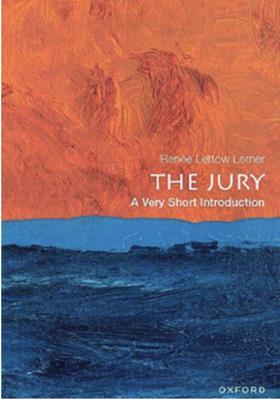
Renée Lettow Lerner £8.99, Oxford University Press
Why do we have 12 members of the jury? Why are they historically expected to make a decision on which they are all agreed? Why do we lawyers have non-lawyers doing a legal job?
The right to have your guilt or innocence decided by a small group of neighbours is a historical and basic entitlement which has taken on almost sacred status.
This is a fascinating short book written with an international emphasis by an American academic who, like many of her US colleagues, values English common law perhaps more than we do. The book introduces the subject with consideration of two films made in the same period. They are To Kill a Mockingbird and 12 Angry Men (pictured), both of which have very different outcomes but deal with jury trial.
The author argues that juries are popular as they have always been cost-effective: they were not paid, or even fed and watered, for most of their history. And judges like them because they deal with the most difficult decision (guilt or innocence) and leave the easy bit (the sentence) to the judge. That is probably an overstatement, but is an interesting way of looking at why juries have lasted so long.
Until the 18th century, there were fewer than 20 judges for the whole country. Trials were quick. At the Old Bailey, a court could deal with up to 20 jury trials a day. This efficiency was helped by a lack of representation and the inability of the defendant to call witnesses or give evidence. Some foremen were chosen repeatedly. In the 17th century, Robert Day served on 118 trials and was foreman on 111 of them. An experienced foreman would know the procedure and be able to direct juries’ deliberations.
Juries have consistently been viewed as a safeguard against arbitrary rule and bullying, and biased or politically motivated judges. They do not have to give reasons and confer in private, so they can make whatever decision they want. There is a temptation, so the book says, for them to disregard the law or even invent new laws to fit their decision. Certainly, serving on a jury is the most important function an individual has.
Juries are untrained, often inexperienced, but offer common sense and fairness. Although they are now fed and watered, and given expenses, they are really volunteers serving the community.
Our commitment to jury trial is something the legal profession has got right. The great lawyer Blackstone regarded juries as ‘the glory of English law’. I was interested in an anecdote about a jury in a complex trial; the judge and counsel were most impressed with the jury’s attention to the case, taking many notes. It was revealed that they had devised a Sudoku competition as they were so bored!
David Pickup is a partner at Pickup & Scott Solicitors, Aylesbury































No comments yet